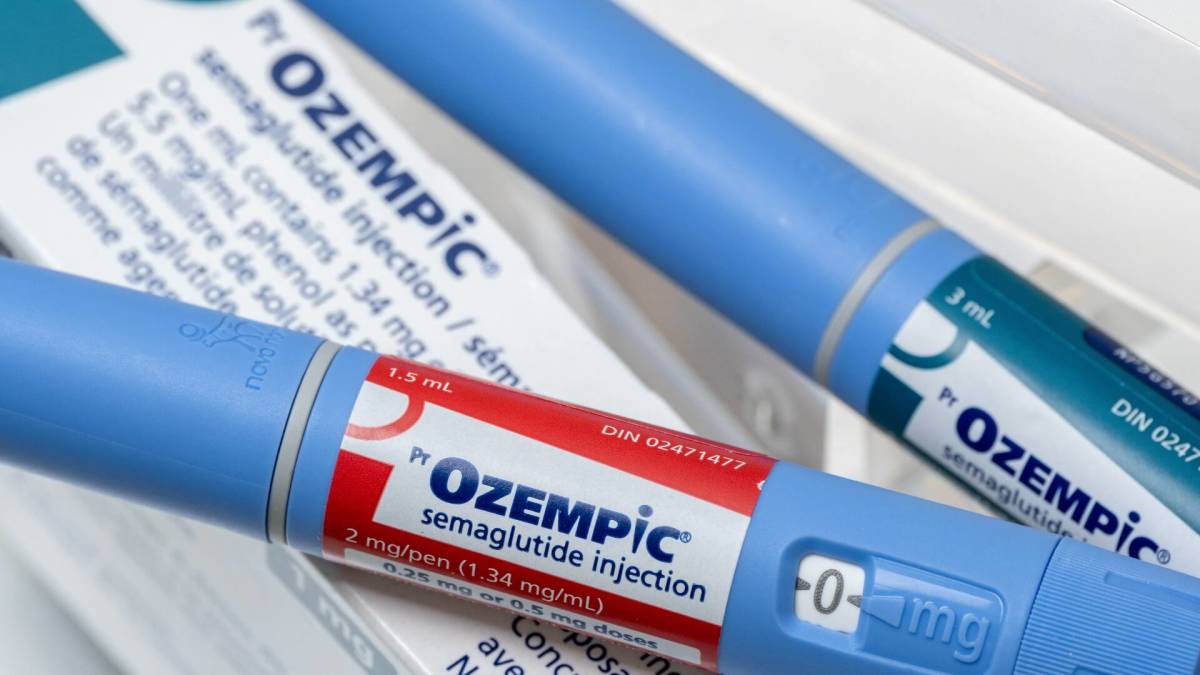
Weight-loss medications have recently soared in popularity as people who have previously experienced difficulty shedding pounds and getting healthy increasingly find them effective for both.
Novo Nordisk (NVO) and Eli Lilly (LLY) have developed GLP-1 drugs for type 2 diabetes that were also found to assist in battling obesity.
Related: The average American faces one major 401(k) retirement dilemma
Ozempic for diabetes and Wegovy for weight loss are manufactured by Novo Nordisk. Mounjaro is Eli Lilly's diabetes drug and its anti-obesity medication is Zepbound.
These are expensive drugs, generally costing around $1,000 for a month's supply. But there are far less expensive alternatives that are becoming increasingly accessible.
Currax Pharmaceuticals CEO George Hampton recently talked with TheStreet and explained how his company makes the comparatively less expensive anti-obesity medication Contrave available for patients.
Weight-loss drug Contrave can be delivered to your home
CurAccess is a delivery program that Currax offers for obesity patients. People with or without insurance pay $99 per month, with free shipping, for Contrave. A prescription from a physician is required.
Contrave comes as a pill to take orally, as opposed to the GLP-1s which are currently taken as injections.
"The basis of CurAccess is it's a bridge that we put in place to help patients who did not have access because their insurance does not cover it to get affordable access to the medication," Hampton said. "It's hard to buy an over-the-counter weight loss medicine at GNC (General Nutrition Centers) for less than $99. So really we've done everything we can to make the price affordable to the patient."
"Patients can receive the product for $99 a month shipped right to their home for free," he added. "And it's by far our most popular program. Well over 50% of our prescriptions go through that channel. And that's one of the things we're most proud of right now is, as a company, being able to fill that gap in insurance for patients."
More on weight-loss drugs:
- Mark Cuban has compelling words about Ozempic and Cost Plus Drugs
- Ozempic, weight-loss drugs rise and the fitness industry reacts
- Ozempic, weight-loss drugs force a change of focus on health
Hampton explained his views on some of the history of obesity as a health epidemic and attitudes toward it.
"So first we ignored it. And then we called it a lifestyle disease," Hampton said. "And we decided when Medicare Part D came in 2003 that we were not going to cover it as a disease. And so it was excluded from coverage. And even after we recognized it as a disease in 2013, we still said we're not going to cover it."
"There's a reason it's the number one epidemic in the United states, and it's because we ignored it," he continued. "And even after we recognized it for what it was, we failed to treat it. And we've unfortunately gifted ourselves with this problem."

Shutterstock
Only 5% of eligible weight-loss patients are being treated
Hampton described how treatment rates for obesity compare to other efforts to improve people's health.
"So we need to move forward and treat it," he said. "At the close of 2023, 5% of all patients eligible for pharmaceutical care for their obesity actually had access to the medication and were being treated. So it's unprecedented."
"Compare that to high blood pressure, in the mid- to high- 70s (percent) treated," Hampton explained. "Type 2 diabetes, you're over 80% treated. And here we are with our nation's number one epidemic and we're 5% treated. So I think we can do a little better."
Hampton discussed how Contrave works compared to GLP-1 medications.
"Right now we have essentially three classes of anti-obesity medicines," he said. "We have the controlled substances which is the phentermine class. We have the class that Contrave is in, which works on the mesolimbic and hedonic systems, which is in the brain. And then we have the GLP-1s, which work in the gut."
"And so right now we have three different classes of anti-obesity medicines and hopefully in the near future, we'll have four and five and six and more coming in the next three to seven years," he said.
Related: Ozempic success story: 'Weight-loss drugs, costs and my health'
Speaking in terms of business, Hampton said Currax, a private company founded in 2019, grew 50% from 2022 to 2023. And he expects it to grow more than that in 2024.
"The reason why, really, is because we're finally starting to make a dent in the idea that it's OK to seek treatment for your obesity," Hampton said.
"We're a long way away from being where the country needs to be, and having people where they need to be able to come in and talk freely with their physician about the disease," he added. "But we're making great progress, and that's showing up in the business."
Related: Veteran fund manager picks favorite stocks for 2024
Contact Jeffrey Quiggle about your own personal stories with weight-loss drugs via email at jeffrey.quiggle@thearenagroup.net.
The author of this story owns shares of Novo Nordisk and Eli Lilly.







